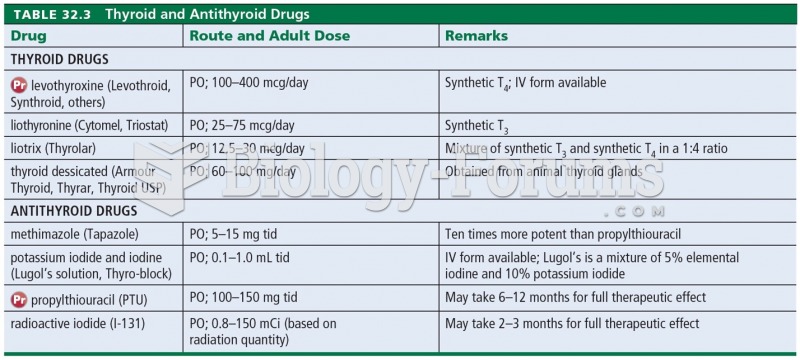|
|
|
Human kidneys will clean about 1 million gallons of blood in an average lifetime.
Approximately 15–25% of recognized pregnancies end in miscarriage. However, many miscarriages often occur before a woman even knows she is pregnant.
Earwax has antimicrobial properties that reduce the viability of bacteria and fungus in the human ear.
The people with the highest levels of LDL are Mexican American males and non-Hispanic black females.
An identified risk factor for osteoporosis is the intake of excessive amounts of vitamin A. Dietary intake of approximately double the recommended daily amount of vitamin A, by women, has been shown to reduce bone mineral density and increase the chances for hip fractures compared with women who consumed the recommended daily amount (or less) of vitamin A.







